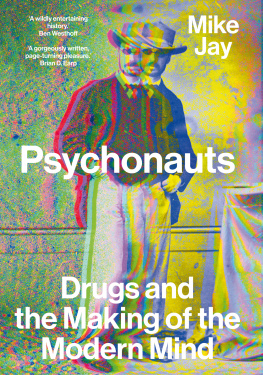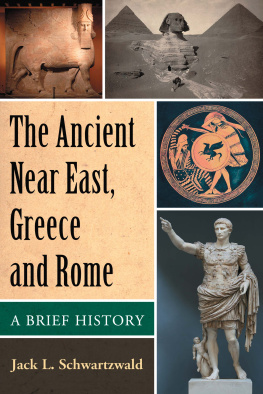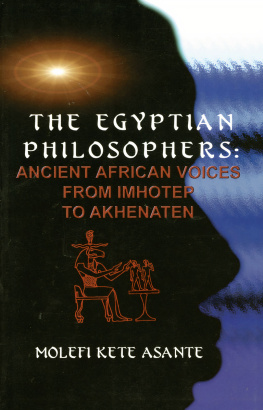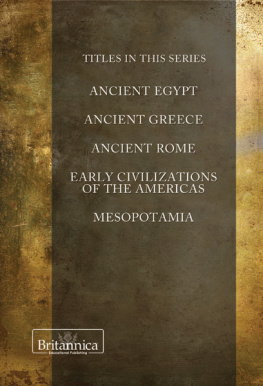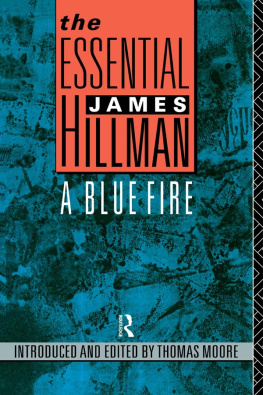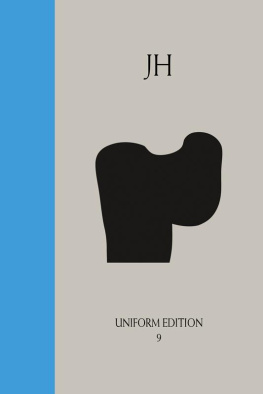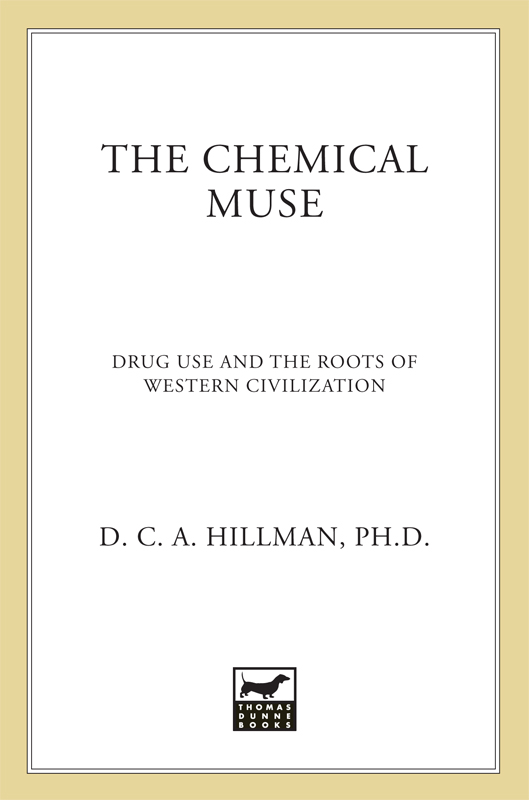Contents
Guide

The author and publisher have provided this e-book to you for your personal use only. You may not make this e-book publicly available in any way. Copyright infringement is against the law. If you believe the copy of this e-book you are reading infringes on the authors copyright, please notify the publisher at: us.macmillanusa.com/piracy.
Contents
For Dante
May you always know yourself
Introduction
I should have seen it coming. After a decade of tireless study in both the sciences and the humanities, thousands of dollars in student loans, two masters degrees, hundreds of hours of grading papers and working with students of my own, and a series of rigorous proficiency examsdesigned more than anything else to scare me into knowing as much as I could about everything that had happened over two thousand years agoI sat in the only suit I could afford, awaiting the verdict on my dissertation exam. The five professors who made up my committee had grilled me for more than two hours, without a single compliment or even a hint of encouragement. They seemed to be preoccupied with just one particular chapter of my 250-page thesis. I shouldnt have been surprised; my papers larger topic, the use of medicinal drugs in the Roman Republic, was accepted, but what they disliked was the chapter in which I wrote about the Roman penchant for recreational drugs and the prevalent use of psychotropics by just about everyone in antiquity, farmers and aristocrats alike.
When the committee called me into the room, nobody was smiling, not even my advisor. They detained me for another hour or so and then left the room, one by one. Not a single member of the committee gave me the traditional congratulations, doctor handshake or wished me luck on a bright academic future. When everyone but my advisor had exited the room, I humbly asked her if I had passed. It was at that point in my life that I first discovered the fine line between intellectual compromise and total capitulation.
The choice was simple. Take out the chapter on the ancient worlds recreational drug use, and any references to narcotics in the rest of the dissertation, or fail the exam. I had seen the evidence for myself, and I knew my conclusions were sound. But it seemed obvious that the committee just didnt like the implications of a drug-friendly Western society. After all, the most vocal member of my committee, the head of the department, had refuted my conclusion that the Romans used recreational drugs with the seemingly nonacademic response, They just wouldnt do such a thing. After years of research, the best that academia had to offer was an anachronistic presupposition: We think drugs are bad, so why wouldnt they?
I felt as if I hadnt gotten my day in court; I was being forced to bury the truth in order to fulfill some sort of moralistic agenda. I knew the founders of Western civilization used recreational drugs, and I had plenty of examples to prove it, but nobody wanted to hear that. So I did the only thing I could; I tucked my scholarly tail between my legs and deleted the sections in my dissertation on narcotics, stimulants, and psychedelics. This pleased the members of my committee, especially those most adamantly opposed to the thought that the greatest minds of antiquity might have indulged in drugs. Within two or three days they had all signed my degree warrant, and presto, I became a Ph.D.
Several months later I decided that the facts I had learned as a grad student were too important to remain hidden by overly conservative academics. After continuing my research into drugs in antiquity, I decided to take my case to the public; I wanted to present the facts to anyone interested, to put as much evidence on display as possible, and to let everyone outside of academia reach the conclusions for themselves. During my tenure as a doctoral student, I had found an excellent book on the history of opium published by Thomas Dunne, publisher of his own imprint at St. Martins Press. I wrote up a proposal and fired it off. A few months later, I found that I would indeed have my day in court.
In writing The Chemical Muse, I wanted to show that recreational drugs were an integral aspect of the same societies that gave us valuable concepts like democracy and the scientific method. I wanted the modern West to see that its founding fathers were drug users, plain and simple; they grew the stuff, they sold the stuff, and, most important, they used the stuff. The modern antidrug campaign is not a democratic movement at all; the ancient world didnt have a Nancy Reagan, it didnt wage a billion-dollar drug war, it didnt imprison people who used drugs, and it didnt embrace sobriety as a virtue. It indulged and from this world in which drugs were a universally accepted part of life sprang art, literature, science, and philosophy.
In order to understand the demand for narcotics and the prevalence of psychotropic drugs in antiquity, its important also to understand the harsh reality of life several thousand years in the past. The first chapter of this book is all about the risks, injuries, and disappointments that dominated life in ancient Greece and Rome and offers some examples of the great minds produced in this ancient crucible. Plagues, natural disasters, poor sanitation, and wars kept pressure on the biological struggle for survival. Life was truly difficult, and the likelihood of your making it to your seventh, eighth, or ninth decades was dramatically lower than it is today. The ancient world didnt worry about heart attacks, strokes, or diabetes. Their killers were the elements of their harsh environment, not poor diet and lack of exercise. Yet despite such harsh circumstances, Classical civilization gave birth to ideas that would guide the cultural development of at least three continents for almost two thousand years after its decline.
As a result of rampant disease and endless variations of physical suffering, the ancient world turned to drugs for the treatment of specific ailments and many forms of pain relief. Ancient medicine, championed by such figures as Hippocrates and Galen, relied heavily on botanicals in the treatment of disease. Ancient medical texts, many of which have never been translated from the original Greek and Latin, are full of descriptions of potions, salves, ointments, purgatives, plasters, and all sorts of other complex medications. Its safe to say that when the Greeks and Romans got sick, they inevitably turned to drugs, as described in this books second chapter. Antiquitys drug knowledge was the result of hundredsif not thousandsof years of trial and, no doubt, error with local plants and vegetation. Like other cultures, the Greeks and Romans found out that some botanical species could treat wounds, some could ease pain, others could even prevent pregnancy and they used them without reservation.
The Greeks and Romans understood that plants could be used as curatives, but they also discovered that drugs could drive you out of your senses. They had experience with a number of plants and fungithings like opium poppies, ergot, mushrooms, and belladonnathat contained strong, mind-altering chemicals. The third chapter of this book examines the most prevalent recreational plants and the potent narcotic and psychotropic drugs they contained. The Classical world, with its great philosophers, tragedians, and statesmen, was well aware of the euphoria, sedation, and temporary psychosis of certain substances derived from plants and animals.


